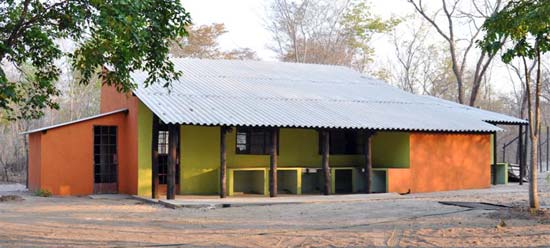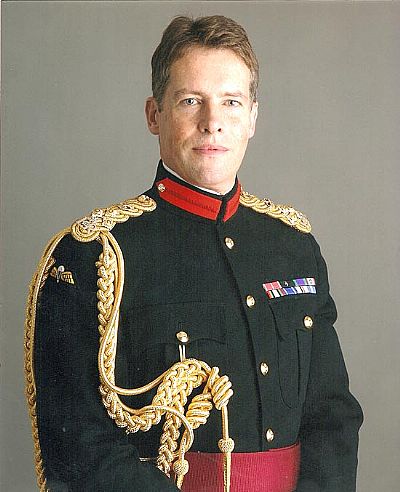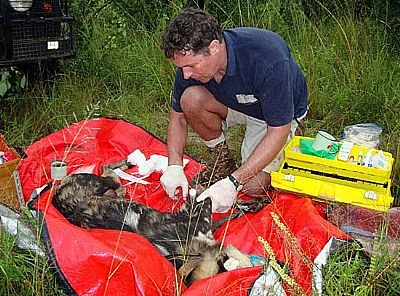Our Patrons
Steve Leonard

PDC UK is honoured to have TV Vet Steve Leonard as one of its Patrons.
“I have been passionate about painted dogs since the first time I saw them in Africa 14 years ago. With such a small number remaining in the wild it's vital that as much can be done as possible to protect them. Combining education, research and conservation - PDC is a shining example of what conservation projects should be all about".
Steve is very well known to TV audiences having made his name as a TV vet with Vet School and Vets In Practice from 1996 – 2000. Since then he has gone on to present several major wildlife series for the BBC including Steve Leonard’s Ultimate Killers, Steve Leonard’s Extreme Animals, Animal Camera, Journey of Life and Incredible Animal Journeys.
Steve’s series with Kate Humble for the BBC Hottest Place on Earth - and the second series of BBC’s Orangutan Diaries with Michaela Strachan - were broadcast in 2009.
In recent years he has completed Animal Kingdom for ITV and has since filmed another wildlife series for ITV1, Safari Vet School which was shown in early 2012. In between all these commitments, Steve also still manages to run a successful family veterinary practice with his brother Tom in Cheshire.
When asked to be Patron, Steve insisted that he would only take on the role if he could be of practical help, rather than just a figurehead and so it has proved.
Painted Dog Conservation Vet Clinic
As Patron of both PDC UK and of Wildlife Vets International (WVI) Steve introduced the two charities and when WVI Trustees met with Dr. Greg Rasmussen, they approved a grant towards the completion of a vet clinic at the PDC headquarters.
With the dire economic situation in Zimbabwe and the consequent increasing use of wire snares in the bush to provide bush meat for local people, it has become vital for PDC to establish veterinary facilities on site to treat injured wildlife, particularly painted dogs. Snared animals, darted and brought in from the bush, otherwise face long and stressful journeys to vet facilities in Bulawayo, with predictable results.

With the increasing international reputation of PDC in southern Africa, and with the excellent rehabilitation facility, the project receives many calls from local farmers to relocate packs from farmland or from wildlife parks in South Africa, anxious to “get rid of” excess predators. Sick, injured and orphaned dogs are brought to the rehabilitation centre for treatment, and then for subsequent return to the wild to rejoin their own packs, or held until new packs can be established at the centre and then returned to the wild. The unusual social dynamics of a painted dog pack enable medical intervention and releases to be much more successful than in other species.
The development of the clinic and wildlife medicine capacity at the rehabilitation centre has been slow due to the well publicised socio-economic situation. Part of the proposed 2012 budget is for the next stage of this development; equipment and training. Steve and a WVI vet will be visiting the clinic in June 2012 and their expertise will be used to develop bespoke wildlife disease protocols to ensure there is no transmission of diseases between painted dog enclosures, from domestic livestock to painted dogs and vice versa, and between PDC staff and the painted dogs, and vice versa. It is planned to provide further basic equipment to the clinic.
A list of veterinary equipment that is urgently needed at the clinic is available on the Wildlife Vets International site.
As part of its “Bridging the Gap” initiative, PDC has an important role as the link between stakeholders and the communities. By illustrating that conservation can deliver benefits in many different ways, PDC hopes to generate consideration, understanding and sympathy for the dogs, at least, and pro active support, at best, within the local communities.
Of his first visit to PDC in June 2012, Steve says:
"I first introduced Wildlife Vets International to Painted Dog Conservation so that one could help the other to conserve this iconic creature. This trip is going to give me a real chance to see an excellent conservation project in action and also assist local vets to protect these wonderful dogs and local people who live alongside them.”
Brig. Dr. Tom Ogilvie-Graham MBE DVM&S MSc MRCVS FRSB


PDC UK is honoured to have Dr. Tom Ogily-Graham as one of its Patrons.
Qualified as a vet from Edinburgh in 1982, took a Masters at Reading in nutrition and microbioligy 1989, achieved a second doctorate from Edinburgh in animal psychology in 2004 and was called to the Bar in 1998. Became the youngest Fellow of the Institute of Biologists and took a Fulbright scholarship at Cornell in 2001.
Served in the Army with the Household Cavalry, operational postings included Northern Ireland, Rwanda, Gulf, Bosnia and Iraq. Tom concluded his army career by commanding the Royal Army Veterinary Corps and being the Queen’s Honorary Veterinary Surgeon in the rank of Brigadier.
Co-founded Wildlife Vets International, was on the Advisory Council of ZSL, ran various conservation projects in Africa including at Lewa Downs, carried out doctoral research on wild equids including zebras, helped introduce a conservation element in conjunction with Twycross Zoo at Nottingham University vet school (where he was a visiting professor) and has helped run vaccination and treatment projects in Zimbabwe.
In addition to being the CEO of the St John of Jerusalem Eye Hospital Group (treats about 120,000 people per year in Jerusalem, Gaza and the West Bank), remains a consultant to Osborne and Partners public affairs company and is a partner in a global renewable energy company.



